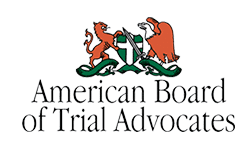What Is an Insurance Adjuster Responsible for After a Car Accident?

If you’ve been in a car crash and are seeking compensation for your injuries, it’s likely you’ll be dealing with an insurance company—whether it’s your own or the other driver’s. When you file a car accident claim, your case will be assigned an insurance adjuster. It’s important to understand their responsibilities after a car accident, so you’ll know what to expect and how to ensure you get proper compensation for your losses.
The Role of an Insurance Adjuster
Overall, insurance adjusters are trained to investigate accidents, determine liability, calculate claim values, and negotiate settlements. When your claim is assigned an adjuster, they will most likely be a staff adjuster. This means that they are an employee of the insurance company. Their paychecks and bonuses likely depend on how they perform their job—which includes protecting the company from significant losses.
The two other categories of adjusters are independent and public. It’s unlikely with a traffic accident that you will deal with either type. An independent adjuster is typically hired by an insurance company for big surge claims—like after a natural disaster. Public adjusters are not qualified to help with personal injury claims, as they typically work with homeowner’s insurance claims. They work for the claimant, not the insurance company.
In most states, insurance adjusters have to go through extensive training before they’re allowed to handle car accident claims. In Mississippi, anyone 18 or older can apply for an insurance adjuster license. Applicants are required to pass a 20-hour pre-licensing course before they can sit in for the state licensing exam.
After a car accident, an insurance adjuster will evaluate the claim. They will interview the claimant and the other driver. If witnesses were present, they may request interviews with them as well. In addition to the interview process, the adjuster will collect police reports, accident reports, medical records, injury and damage photos, and other relevant documentation—including information about the accident scene and the property damage to the vehicles involved. The evidence they gather will help them make a liability determination. In the event they are unable to determine liability, it’s likely they will refer to their supervisor, who will assist with the final decision.
In addition to figuring at who is at-fault for an accident, the insurance adjuster also assesses the damage to the claimant’s vehicle to determine what’s owed. They may visually inspect the vehicle or request an estimation from a certified repair shop.
How Insurance Adjusters Value Claims
In order to determine the value of a claim, the insurance adjuster will look at a number of factors including expenses incurred, lost income, pain and suffering, and other negative effects of the injuries and damage. Those are referred to as the damages associated with the accident.
In addition to the damages, the insurance adjuster will look at the policy limit and the strength of a claimant’s case. An insurance company will never pay out more than the maximum amount of the insurance policy. If, for example, the policy limit is $50,000, it’s likely the claimant would need to pursue additional legal action against the liable party if the damages exceed that limit.
In regard to the strength of a claimant’s case, the insurer is more likely to offer a settlement if there is sufficient evidence. If, for example, you were hit by a drunk driver who flew through a stop sign, it’s likely liability is clearer than if you collided with another vehicle at an intersection during rush hour.
In the event you are not offered a fair settlement through negotiations with your insurance adjuster, your attorney can inform you of your legal options and what the next steps are.
Maximize Your Compensation with Pittman Roberts & Welsh, PLLC
It’s important to remember that the adjuster assigned to your claim is likely an employee of your insurance company. Because of that, they’re going to keep in mind their company’s bottom line. As a result, they may use tactics to try to reduce the value of your claim. For example, common questions like “How are you feeling?” are generally loaded. You may respond that you’re feeling fine out of habit, but they could record that and later say you weren’t suffering from the injuries or pain you initially filed for.
That’s why it’s imperative to work with an experienced law firm when you decide to file a car accident claim. Not only will a lawyer ensure you receive full and fair compensation if you choose to settle through negotiations with the insurance company, but they will handle the conversations and paperwork for you so nothing jeopardizes your claim.
It’s important to note that in the event settlement is not possible, we will pursue your claim in the courtroom. While the majority of car accident claims settle, we’re prepared to head to trial to fight for your rights and an official verdict. For more information on insurance adjusters or to schedule a free consultation, contact us today.








